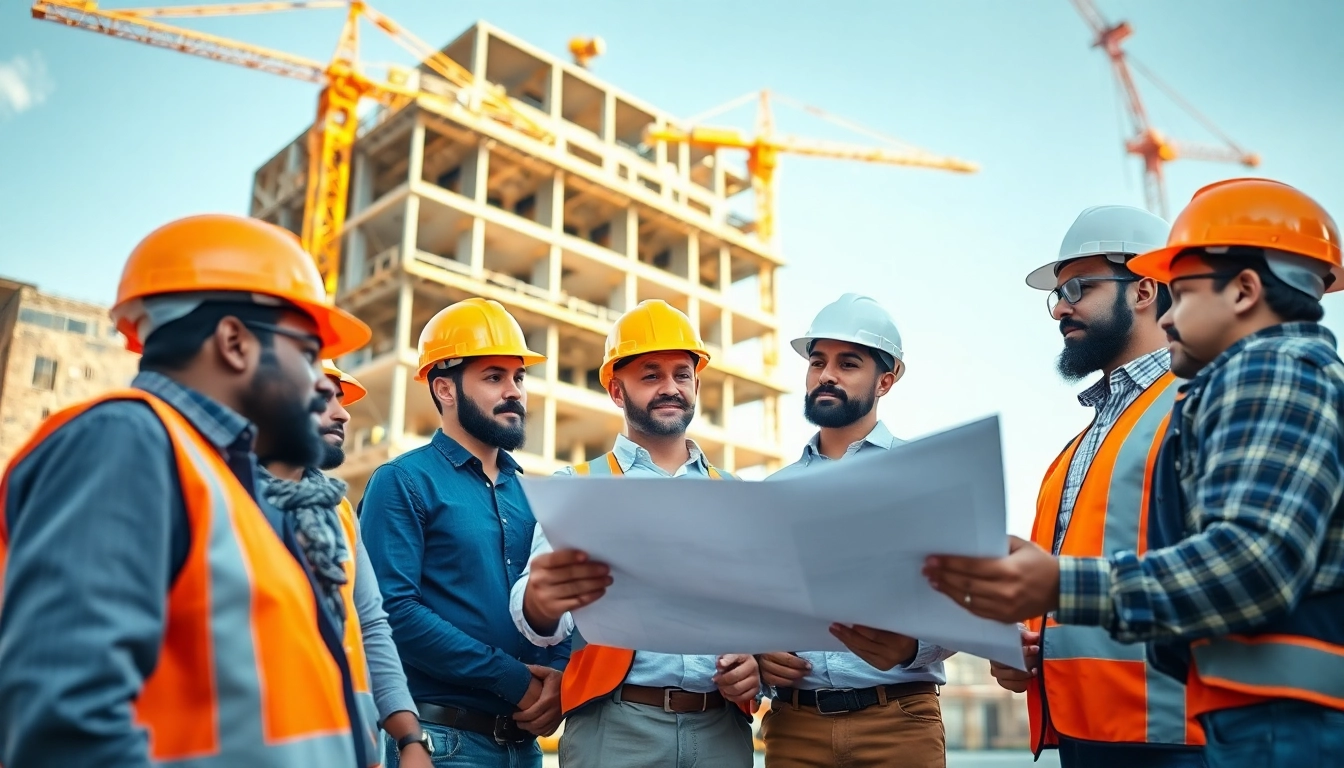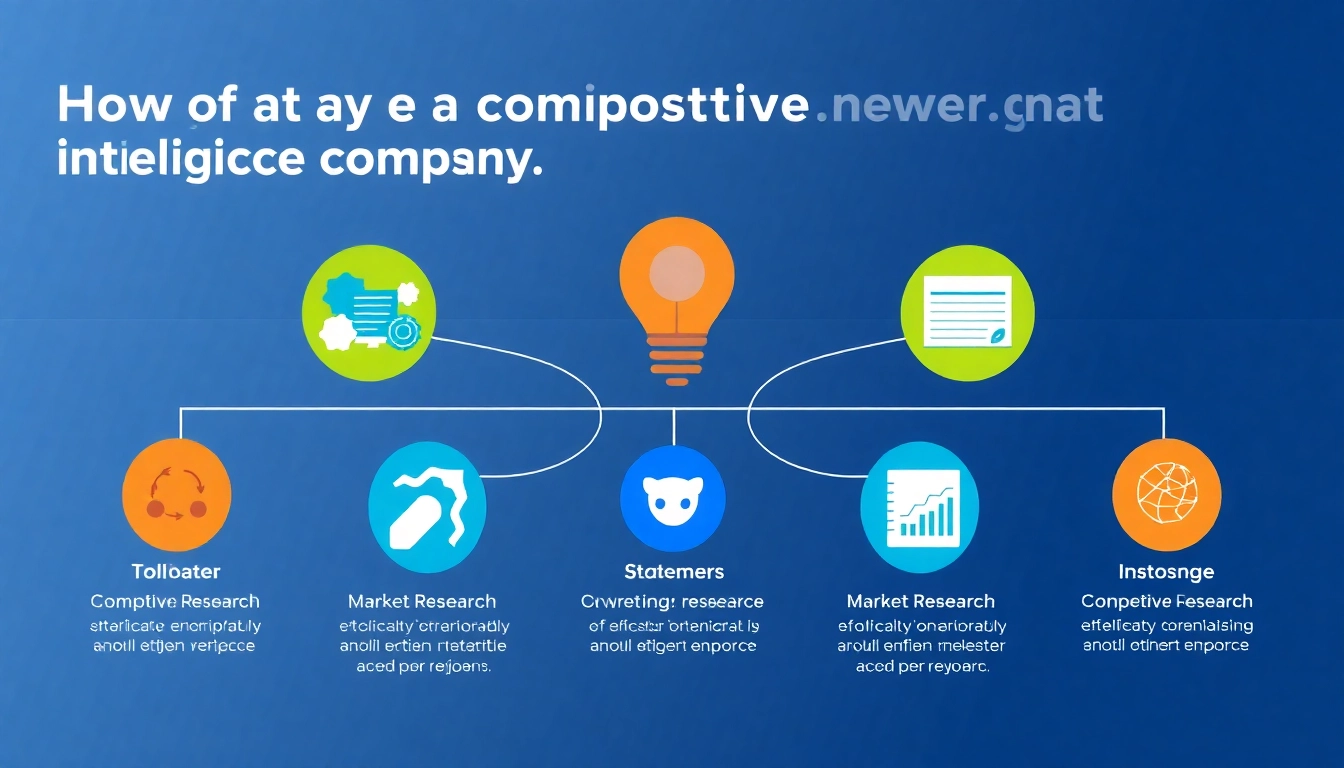Understanding the Role of a New York General Contractor
In the bustling construction landscape of New York, the role of a general contractor is pivotal. As overseers of construction projects, they not only handle the nitty-gritty aspects of building but also ensure that everything runs smoothly from start to finish. Navigating the construction process can often feel overwhelming for property owners, making the selection of a competent New York General Contractor essential to a successful project.
What Does a New York General Contractor Do?
A New York general contractor is responsible for the overall coordination of a construction project. Their duties encompass a wide range of tasks, including:
- Project Planning: General contractors work closely with architects and designers during the initial stages, helping to develop plans that align with the client’s vision, budget, and timeline.
- Subcontractor Management: They hire, supervise, and coordinate the work of subcontractors, ensuring that specialists like electricians, plumbers, and carpenters meet quality standards and timelines.
- Sourcing Materials: General contractors handle the acquisition of necessary materials while ensuring they meet local and federal building codes.
- Budget Management: They prepare detailed budgets and track expenses throughout the project to keep it within financial constraints.
- Scheduling: Creating an efficient timeline for project milestones and ensuring that work is completed according to plan is a critical facet of their role.
- Compliance and Safety: Ensuring that the construction site adheres to local safety regulations and building codes is paramount for a general contractor.
- Communication: They act as the primary point of contact between the client, subcontractors, and suppliers, facilitating smooth communication and timely updates.
Benefits of Hiring a Local New York General Contractor
Choosing a local contractor has several advantages that can significantly impact the success of a construction project:
- Local Knowledge: A local New York General Contractor possesses a deep understanding of regional building laws, climate conditions, and the best suppliers and subcontractors in the area.
- Faster Response Times: Proximity allows for quicker site visits, responsiveness to challenges, and better overall project management.
- Established Networks: Local contractors have established relationships with suppliers, subcontractors, and inspectors, which can lead to better pricing, timely deliveries, and streamlined inspections.
- Personalized Service: Local contractors tend to offer a more personalized approach, allowing for better customer service and communication throughout the project.
Key Qualities to Look for in a New York General Contractor
When seeking a suitable New York general contractor, consider evaluating potential candidates against the following qualities:
- Experience: Look for contractors with a solid track record of completed projects similar to yours.
- References: Assess their reputation by reaching out to past clients or reading online reviews.
- Communication Skills: Ensure they are transparent, communicative, and responsive to your inquiries.
- Problem-Solving Skills: A qualified contractor should demonstrate agility and creativity in addressing unexpected challenges that arise during the project.
- Licensing and Insurance: Verify that the contractor holds the appropriate licenses, certifications, and insurance to protect you from liability.
Steps to Finding the Best New York General Contractor
How to Research New York General Contractors Effectively
Researching general contractors is essential for making an informed decision. Here are steps to conduct thorough research:
- Online Research: Utilize review platforms, social media, and construction forums to gather information about potential contractors.
- Check Credentials: Investigate their licensing status through the New York State’s licensing board and ensure they hold all necessary permits.
- Look at Portfolios: Review their previous work to evaluate the quality and style of projects they’ve completed, seeking ones that align with your vision.
- Interview Candidates: Narrow down your options and conduct interviews to gauge their communication style and responsiveness.
- Request Estimates: Ask potential contractors for estimates that outline their approach and pricing structure.
Questions to Ask Potential New York General Contractors
Asking the right questions during the selection process can help clarify if a contractor is the right fit for your project. Consider the following inquiries:
- What is your experience with projects similar to mine?
- Can you provide references and examples of your previous work?
- What is your proposed timeline for this project?
- How do you handle budget overruns or unexpected expenses?
- What is your policy on communication and updates throughout the project?
- What warranties or guarantees do you offer for your work?
Comparing Quotes from New York General Contractors
Receiving multiple quotes from different contractors is vital to ensure you get the best value for your project. When comparing estimates, consider these factors:
- Scope of Work: Make sure each quote outlines the same scope of work, including labor, materials, and timelines, for an accurate comparison.
- Price Breakdown: Look for detailed breakdowns of costs to understand where your money is going—labor, materials, permits, and any additional fees.
- Value vs. Cost: The lowest quote may not always be the best choice. Consider the contractor’s experience, reputation, and quality of work.
- Payment Terms: Review each contractor’s payment schedule and any upfront costs to ensure it aligns with your budget.
Essential Certifications and Licenses for New York General Contractors
Understanding Contractor Licenses in New York
New York requires general contractors to have specific licenses based on the types of work performed. Understanding these requirements can help confirm the legitimacy of potential hires:
In New York City, for instance, general contractors typically need to apply for a Home Improvement Contractor License or a General Contractor License, depending on the scale and scope of the work. This is mandated by the Department of Buildings and ensures compliance with local construction regulations.
Certifications That Add Value to New York General Contractors
Aside from licensing, various certifications can showcase a contractor’s proficiency and commitment to quality. Certifications that add value include:
- LEED Accreditation: Demonstrates knowledge of sustainable building practices.
- OSHA Certification: Indicates training in safety standards, essential for protecting workers and minimizing liabilities.
- NARI Membership: Provides access to resources and continuing education, showcasing commitment to professional growth.
Importance of Insurance and Bonding for New York General Contractors
Insurance and bonding are crucial for protecting both the contractor and the homeowner:
- Liability Insurance: Covers damages or injuries that may occur on the job site, shielding you from potential financial loss.
- Workers’ Compensation Insurance: Necessary to cover medical expenses and lost wages for employees injured on the job.
- Bonding: A bonded contractor provides a guarantee to complete the project as per the contract, offering peace of mind that funds are secured against incomplete or subpar work.
Building a Successful Partnership with Your New York General Contractor
Establishing Clear Communication with Your New York General Contractor
Effective communication is foundational to a successful working relationship. Establish channels for communication and set expectations early in the process:
- Regular Updates: Establish how often you’d like progress updates—weekly or bi-weekly—and stick to it.
- Communication Platforms: Decide on the preferred methods of communication (email, phone, project management tools) to ensure continuity.
- Feedback Loop: Be open to providing feedback and encourage constructive dialogue to address any concerns promptly.
Setting Realistic Expectations and Timelines
Transparency in setting timelines is essential for satisfactory project completion:
- Discuss Milestones: Work together to outline key milestones and deliverables for reference throughout the project.
- Accommodate Flexibility: Be prepared for potential delays due to weather, materials shortages, or other unforeseen factors.
- Celebrate Progress: Acknowledge completed milestones, as this fosters a positive relationship and encourages morale on the job site.
Managing Changes or Challenges During Construction
Challenges and changes are a part of any construction project. Here are best practices for navigating these scenarios:
- Change Orders: Develop a clear process for managing change orders, including approvals and adjustments to budgets and timelines.
- Document Everything: Keep written records of discussions, decisions, and agreements to avoid misunderstandings and disputes.
- Work Together: Foster a cooperative environment where both parties can address issues as they arise, keeping the project’s goals in focus.
Case Studies: Successful Projects by New York General Contractors
Residential Renovations: A New York Success Story
Renovating a historic brownstone in Brooklyn, a general contractor faced unique challenges related to maintaining the building’s structural integrity while upgrading outdated systems. Through careful planning and collaboration with preservation specialists, the contractor successfully integrated modern amenities while adhering to preservation standards, resulting in a stunning transformation admired by the community.
Commercial Development: Overcoming Urban Challenges
In Manhattan, a general contractor undertook a commercial development project that involved building a mixed-use space in a congested urban area. The project required out-of-the-box thinking to manage logistics, such as limited space and strict regulations. Through innovative project management techniques, including efficient scheduling and clear communication with local authorities, the contractor delivered the project on time and within budget, showcasing their adaptability in a challenging environment.
Innovative Designs Implemented by New York General Contractors
One high-profile project involved a contemporary office space designed to promote collaboration and sustainability. The contractor collaborated with architects to incorporate eco-friendly materials and space-saving techniques. The result was an award-winning office that not only enhanced productivity but also set a benchmark for future developments in New York, illustrating the contractor’s commitment to innovation and quality.



